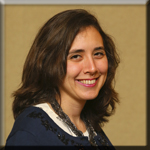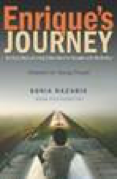Fake News, Alternative Facts, And The Information Crisis.
Contributed by Smita Avasthi, Public Services Librarian, Santa Rosa Junior College
Like many other librarians, I have been alarmed by recent upheavals of the information landscape. We have been confronted by fake news, “alternative facts,” and the prohibition of governmental agencies to publish data without approval from the White House.
I imagine that the rapid succession of these events has led even the most intrepid librarians to feel daunted by the task of helping students navigate this unfriendly world. I am no exception to feeling overwhelmed by the challenges we face.
But I have tried to tackle this question head-on. I not only bring up this topic during one-shots, but I also am rethinking my information literacy class due to my continuous engagement with ACRL’s framework for information literacy. While I make no claims to have a secure handle on this topic, here are some conclusions I have drawn.
First, there are no easy answers. It is hard to imagine how many of the guidelines we set forth have now been challenged. As an example, let’s look at our recommendation to use governmental websites for authoritative information. Recently, many governmental organizations have been curtailed in what they can publish online.
On some level, governmental websites have always been limited in their research findings; for example, the CDC has been unable to fund research on gun violence for many years. However, the new administration has expanded the scope of these restrictions dramatically, and it appears that the approval process may not include scientists.
These developments raise a slew of questions. Can we trust .gov sites when the White House may influence the quality of their content? What will happen if the EPA faces restrictions on publishing findings on climate change? How about a press secretary who is committed to providing “alternative facts” regardless of documented evidence?
I would say that these issues are further pronounced when considering the tools we have developed to evaluate the quality of information sources. Librarians have relied upon a series of “tests” to guide students, the most ubiquitous of which is the CRAAP test. Purveyors of fake news or straight-up propaganda, however, can write an “about us” page that allows their sites to sail through such tests.
And this is where I found the framework to be a useful document. The framework is, of course, not a quick read. But after considering it from a multitude of angles, I believe that the framework articulates the principles that inform standard academic research practices. These practices are designed to ensure that research is intellectually honest.
For example, the notion that research is inquiry helps guard against confirmation bias. When done ethically, research is not about finding evidence to support your opinions; it is about discovering your opinions by consulting data from multiple sources.
Similarly, an understanding of how information is created—and vetted—is crucial to conducting credible research. Data collection takes time, which is antithetical to sources committed to speed over accuracy, like so much of our current news media.
And, of course, the notion of authority as a construction—not as a given—is how scholars build and maintain reputations. As I have said to my students, knowledge is not handed to you; knowledge is earned. The same applies to authority; our notions that authority is automatically conferred must be interrogated.
With all of this in mind, I plan to use the notion of intellectual honesty to focus my class. What does it entail to be intellectual honest? How can we spot signs of dishonest research and unearned conclusions? When does an interpretation of facts become an alteration of facts?
These are questions without easy answers.
Students, of course, want easy answers. As a librarian and a teacher, I consistently find this tension in my work; I want to assist students as seamlessly and quickly as possible, yet I know that oversimplification of complex ideas will not provide long-term intellectual growth.
I believe we are in the midst of an information crisis. I also believe that librarians are uniquely situated to help students weather this crisis, and easy answers will not equip our students to survive as lifelong learners, critical thinkers, or informed citizens.
So, I am going to give more weight to the side that advocates intellectual growth than a quick rule of thumb. Perhaps I am mistaken. But I have been startled by the growing body of evidence that our students cannot evaluate sources effectively. What we have been doing has not been enough.
Thus, I suggest we must do better to prepare our students for this new information world. It will be hard and messy, and we will make mistakes. But we cannot pretend that the old rules still apply in this information crisis. Instead, I believe it is time for us to look squarely at these challenges and then rise to meet them.



